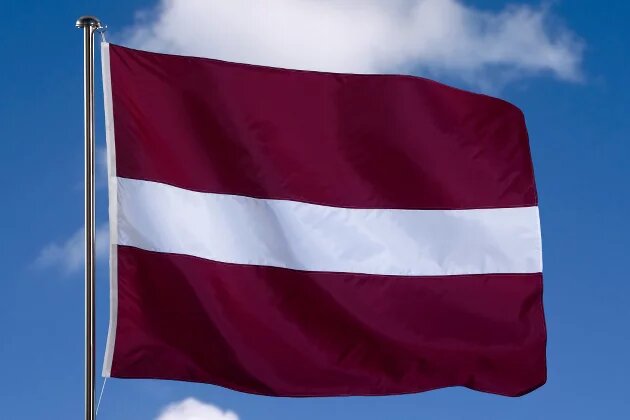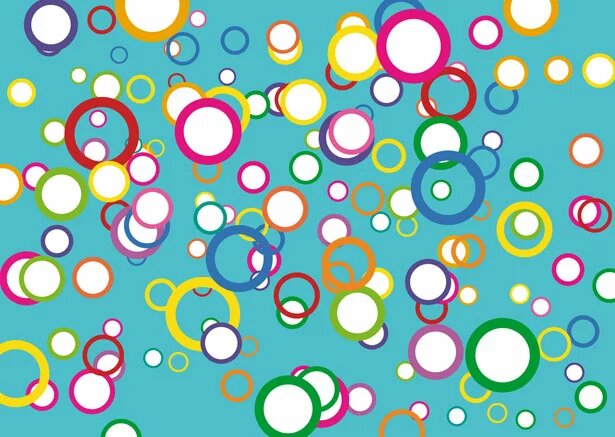

Gender-political situation in Latvia
Legal situation:
-
Laws on quotas, above all in the political and economic fields
-
Other laws and legislative regulations and government programmes
Protagonists:
Academia
Brief description and evaluation
Latvia regained its independence in 1990. After the collapse of the Soviet Union, Latvia emerged as a country with a relatively high engagement of women in paid work. Women with small children had a strong tradition of reconciling work and family life.
Nevertheless, strong gender stereotypes still exist in Latvia and are reflected in gender segregation across fields of education, occupations and economic sectors. Segregation in fields of education, as well as in occupations and economic sectors is pronounced and results in a persistent gender pay gap. Employment policies in Latvia are mostly gender neutral. Such issues as segregation and stereotypes are largely addressed through awareness raising campaigns and informative seminars.
The formal understanding of the concept of gender equality is not well established. The understanding of gender equality is weak among citizens in general but also among politicians.
The traditional cultural values of Latvia are the values of the patriarchal peasant family. In this context women are respected and enjoy some privileges but their role is mainly seen as a mother’s role. The traditional values are still quite strongly supported by nationalistic movements in Latvia.
During its short history, the state of Latvia experienced vast cultural, political and economic changes. In such turbulent times, gender equality was not at the top of the political agenda. However, gender equality issues gained more attention following the EU accession.
People in Latvia have difficulties in reconciling work and family life. The lack of flexible employment arrangements and childcare facilities for children below the compulsory school age frequently put a double burden of work and care on women (who are still seen as the main care providers) compared to men. Some improvements have been made regarding the availability of childcare for small children by both increasing the number of places in the public preschool institutions and co-financing the costs of private care. However, it is doubtful if an assessment of the effectiveness of these measures will be carried out.
The poor work-life balance doesn’t help to solve the acute demographic problems that Latvia faces. Latvia has one of the lowest fertility rates in the EU and an ageing population. The demographic situation is one of the main topics on the Latvian policy agenda. The child-related benefits, therefore, are seen rather as a measure for improving the demographic situation than in connection with gender equality. While the father’s role in the family is supported and promoted, the mother’s role is seen as naturally occurring. In this context, the promotion of equal sharing of paid and unpaid work between men and women is weak.
Violence against women is widespread in Latvia but there is a lack of reliable and consistent statistics on this topic. There is no integrated approach to eradicate gender based violence. The cooperation between the institutions involved is relatively weak. Nevertheless, the issue of violence has got a lot of attention in the recent years and some´progress has been made.
[Source: FEMM Committee (2015). The Policy on Gender Equality in Latvia. (English, p. 6f.)]
Legal situation
Gender equality legislation/Anti-discrimination legislation
Latvia has no specific anti-discrimination law or gender equality law. The general principle of equality is enshrined in Article 91 of the Constitution of Latvia. It states that: “All human beings in Latvia shall be equal before the law and the courts. Human rights shall be realised without discrimination of any kind.”
The most important sectorial laws containing norms promoting gender equality are the Labour Law and the Labour Protection Law (in force since 2002). The Labour Law includes a general provision prohibiting direct and indirect discrimination on several grounds including sex. The relevant European Commission Directives on equal opportunities are incorporated into these two documents.
[Source: FEMM Committee (2015). The Policy on Gender Equality in Latvia. (English, p. 8)]
The Labour Law provides protection against all forms of discrimination (direct, indirect, harassment, instruction to discriminate and victimisation) in all aspects of employment relationships, both in the public and private sector, including state civil service relationships (yet excluding military service) and contract work of self-employed persons, including the establishment of such relationships, concerning inter alia gender, race, age, disability, religion and sexual orientation.
[Source: Latvian Labour Law]
Anti-discrimination law is fragmented in Latvia: there is no one single comprehensive law, however, the coverage has improved due to the adoption of amendments to existing laws. The main problem is that since discrimination is not outlawed in the private sector unless expressly provided for by statute and, even though it is outlawed in the public sector due to the supremacy of the Constitution, the absence of a specific implementing law considerably complicates enforcement of the prohibition.
The main problem with Latvian anti-discrimination legislation is the patchy nature of the regulation, from which most other problems arise. Generally all of the required fields are covered, within those fields not all of the required grounds are covered.
[Source: European network of legal experts in the non-discrimination field (2013). Country Report Latvia 2013 (English, p. 5)]
Laws on quotas, above all in the political and economic fields
In Latvia, there are no special quotas for female representation, but evidence proves that voluntary and even self-regulatory measures are effective in delivering results, which is also Latvia’s case.
[Source: http://www.baltictimes.com/news/articles/35737/]
In other words: Latvia has no legislation or recommendations regarding gender quotas in political or economic spheres. Despite this, equal participation of men and women in decision making is one area where Latvia performs relatively well according to the European Gender Equality Index.
[Source: FEMM Committee (2015). The Policy on Gender Equality in Latvia. (English, p. 10)]
Latvia is ranked below the EU average according to the European Gender Equality Index. Latvia has an indicator above the average only in one area: Power. This is due to a relatively high participation of women in economic and political decision making. Latvia had a female president in the past and currently has a female prime minister. In 2014, the share of women in decision-making positions in publicly listed companies was the highest in the EU. However, there are no policies that support women's participation in decision making.
[Source: FEMM Committee (2015). The Policy on Gender Equality in Latvia. (English, p. 7)]
Other laws and legislative regulations and government programmes
Latvia takes an ‘integrated approach’ to gender mainstreaming. This means that the principles of gender equality are taken into consideration while developing policies in any area and at all levels.
The first strategic document in the field of gender equality policy in Latvia was the Concept Paper on Gender Equality Implementation (Ministry of Welfare, 2001). The Concept Paper is used as a fundamental basis for the development of further plans of action and documents to implement the goals of the gender equality policy.
During the last decade, three operational documents in the field of gender equality have been launched by the government. The first one was the Programme for the Implementation of Gender Equality 2005–2006 (Ministry of Welfare, 2004). Its aim was to promote an efficient, integrated and coordinated implementation of gender equality issues and develop sustainable institutional mechanisms. Four main directions of action were identified: (1) raising awareness in the society about gender equality issues; (2) reconciliation of work and family life; (3) improvement of the administrative capacity to work with gender equality issues and improve gender equality policy mechanism; and (4) prevention of violence.
The second document, the Programme for the Implementation of Gender Equality 2007–2010 (Ministry of Welfare, 2006), focused on six directions (in line with the EU Roadmap for Gender Equality): (1) awareness raising about gender equality of the general public; (2) training on gender equality for specialists in central governmental institutions and other specialists; (3) improvement of monitoring of gender equality policy implementation; (4) highlighting the issue of domestic violence; (5) studying the health-related lifestyle habits of men and women, and (6) reconciliation of work and family life. The implementation of the programme took place in the very difficult period of severe economic crisis. Therefore many of the planned initiatives were suspended due to the lack of financial resources.
The third and latest national gender equality document is the Programme for the Implementation of Gender Equality 2012-2014 developed by the Ministry of Welfare in cooperation with other Ministries, institutions, and non-governmental organisations (Ministry of Welfare, 2011). This plan continues the activities commenced in the previous two Programmes. The Plan focuses on four major action areas: (1) reduction of gender roles and stereotypes; (2) promotion of healthy and environmentally friendly lifestyles for men and women; (3) promotion of economic independence for men and women and their equal opportunities in the labour market; (4) monitoring and evaluating gender equality policy. Because of the lack of financial resources and budget cuts, the Plan only includes policy measures which do not require additional financial or human resources.
The Ministry of Welfare is going to publish an informative report about the implementation of this Plan by July 1, 2015. The development of the next Programme is planned for the third quarter of 2015.
So far, Latvia hasn’t developed gender budgeting or auditing. So Latvia has no legal obligations to use methods of gender impact assessment and gender budgeting, and that the latter is a practically unknown in Latvia.
[Source: FEMM Committee (2015). The Policy on Gender Equality in Latvia. (English, p. 7)]
Protagonists
NGOs: political parties, civil society organisations
Latvijas Sieviesu Organizaciju Sadarbibas tikls (Women’s NGOs Cooperation Network of Latvia
Inete Ielite: She is one of co-founders of Coalition for Gender Equality of Latvia - the largest umbrella organisation in Latvia, from 2003 – a Board Member. Inete is trainer and consultant well-known in the region.
Contact:
Dzirnavu 3a-22
Riga LV1010
Latvia
Tel: (+371) 2 9493300; (+371) 2 646 8079
E-Mails: Inete.Ielite@bernuforums.lv; edipsi@yahoo.com
Facebook: https://www.facebook.com/www.sieviesusadarbiba.lv
Family Planning and Sexual Health Association of Latvia (Jaunumi, lettisch)
Der Verein setzt sich für die sexuelle Freiheit von Frauen und Männern ein, vor allem aber für Aufklärung und das Recht zur Bestimmung über den eigenen Körper. Hierzu zählt auch die Möglichkeit der Schwangerschaftsunterbrechung. Der Verein ist Mitglied im zentral- und osteuropäischen Netzwerk Astra.
Contact:
Grēcinieku iela 34,
Riga, LV-1050
Latvia
Phone: +371 67212 700
Fax: +371 67226 787
Email: info@papardeszieds.lv
Latvian Business Women Association (LBWA)
LBWA is non governmental organization joining 39 women organizations and clubs from all over Latvia.
Latvian Business Women Association (LBWA) deals with gender equality, human rights and integration issues at national and international levels. Organization`s functions include awareness raising of women who want to achieve economic independence, society integration measures, promotion of gender equality in policy and decision taking authorities, international cooperation with similar institutions over the world and strengthening of civil society. Organization has been registered in 2003; however, management of organization has been involved in many social projects at local and international level already since 1993.
[Source: http://ngolatvia.lv/en/organizacijas-3/234?view=organizcija]
Contact:
Latvian Business Women Association (LBWA)
Irina Pētersone
Lāčplēša iela 13
Rīga, LV-1010
Tel.: +371 29340578
Facebook: https://www.facebook.com/latvianbusinesswomen/info?tab=overview
Socialdemokratiska Organization (Socialdemocratic Women´s Organization)
In der Partei ist die Geschlechtergerechtigkeit zumindest Thema, wenn auch auf die Frage der Frauen beschränkt; es gibt Aktivitäten zum Frauentag einhergehend mit Forderungen zu Frauenrechten.
Contact:
K. Valdemara str.20
PO Box 5
LV-1010 Riga
Tel: +371 7 240190 or -7240226
Fax: +371 7 240190
Labklājības ministrija (Ministry of Welfare) (in Latvian)
The gender machinery in Latvia was established in 1999 with the Ministry of Welfare becoming the main institution responsible for the development of gender equality policy in Latvia. The Ministry is responsible for the coordination of the gender equality policy, monitoring and assessment of gender equality initiatives, monitoring the overall situation, and gender impact assessments.
[Source: FEMM Committee (2015). The Policy on Gender Equality in Latvia. (English, p. 10)]
Contact:
Labklājības ministrija
Skolas ielā 28,
Rīga, LV – 1331
E-mail: lm@lm.gov.lv
Facebook: https://www.facebook.com/labklajibasministrija?ref=hl
Gender Equality Unit
In 2003, the Gender Equality Unit was organised within the Ministry of Welfare in order to coordinate and promote responses to issues of gender equality. Since December 2009, the Gender Equality Unit has been part of the Department of Equal Opportunities. The Gender Equality Unit is the main executive institution for gender equality policy within the Latvian administration.
[Source: FEMM Committee (2015). The Policy on Gender Equality in Latvia. (English, p. 8)]
Gender Equality Commission
The Gender Equality Council was established in 2002 to ensure the implementation of the gender equality policy at the highest level. In May 2010, it was reorganised into the Gender Equality Commission, which coordinates gender equality policy and promotes cooperation between Ministries, non-governmental organisations, social partners, municipalities and other bodies. The Gender Equality Commission has a consultative role and also a role in co-ordinating gender equality policy between different stakeholders.
[Source: FEMM Committee (2015). The Policy on Gender Equality in Latvia. (English, p. 8)]
The Ombudsman Office of the Republic of Latvia (in Latvian)
The Ombudsman Office of the Republic of Latvia, established in 2007, is an independent institution. The Ombudsman of the Republic of Latvia is an official elected by the Parliament, whose main tasks are encouragement of the protection of human rights and promotion of a legal and expedient state authority, which observes the principle of good administration. The Ombudsman is independent in its actions and is governed only by law.
[Sources: http://www.equineteurope.org/-Latvia-, Equinet (2012). Office of the Ombudsman]
Contact:
Baznīcas iela 25
Rīga, LV-1010
Latvia
Tel.: +371 67686768
Fax: +371 67244074
E-mail: tiesibsargs@tiesibsargs.lv
Ausma Cimdina
Doctor of philology, professor for Latvian literature at the University of Latvia since 1985 and editor of the Almanachs Feministica lettica.
ausma.cimdina@lu.lv
Anita Svarckopfa
Field of expertise: social statistics; employed in Latvia’s central bureau of statistics. She also prepared statistics such as “Latvian Women and Men: a statistical Portrait” (1997) and “Women and Men in the Baltic States” (2002)
Anita.Svarckopfa@csb.gov.lv
Academia
Universities
Center for Gender Studies at the University of Latvia (in Englisch)
Gender studies centre at the University of Latvia offers the opportunity to obtain the information about gender studies, feminism, variable conferences and workshops about gender studies in Latvia, as well as in other countries. The library of the Centre offers books and other materials about the situation in Latvia and in the whole world. Gender studies centre cooperates with the other universities' centres for gender studies and takes part in different projects.
Contact:
Center for Gender Studies at the University of Latvia
Visvalža street 4a, room 311
LV-1582, Riga
Latvia
Tel. : +371 67034827
E-Mail: Irina.Novikova@lu.lv
Petijumu centrs "Feministica Lettica" (The Centre for Feminism Studies, in English)
Feministica Lettica, founded in 1999, is the centre for interdiscplinary studies, with the focus on the gender studies and feminism. The goal of the centre is to study, analyze and interpret the Latvian language and literature from the point of view of contemporary theories on feminist literature and culture. The special attention is paid to the aspects of gender identity as the part of the ethnic and cultural identity. The centre aims at promoting the formation of the tolerant, educated and gender-aware society in Latvia. The Centre is funded under the grant system of the Latvian Council of Science.
The work of the centre Feministica Lettica includes the following:
- Organisation of interdisciplinary research conferences/workshops;
- Participation in development, co-ordination and implementation of research projects in Latvia and worldwide;
- Edition of an interdisciplinary research almanac Feministica Lettica (since 1999);
- Development of special courses (funded under international research projects) within study programmes in Latvianian Baltic studies and other humanitarian discliplines
Contact:
Feministica Lettica
Room 216, Visvalza street 4a, Riga
Tel.: +371 67034843
Head of Centre: Professor Ausma Cimdiņa
E-Mail: ausma.cimdina@lu.lv
« top
Sources
Availability of sources
The internet sources can best be assessed as mediocre. For research purposes, EU policy documents, such as those of the FEMM Committee, have proven to be especially helpful. In turn, however, only a handful of NGOs and other social actors (e.g. scientists) engaged in gender equality policy can be found.
Due to a lack of adequate keywords, accessing Latvian sources proved difficult. Texts and analyses published on the internet in English (see Europe) provided an easy starting point. But knowledge of Latvian is essential for access to probably more relevant websites.
Keywords in Latvian:
Gender justice - dzimumu līdztiesību
Gender equality - dzimumu tiesu
Equality – līdztiesību
Gender mainstreaming - dzimumu līdztiesības
Relevant sources
Relevant website addresses were inserted in the text.
This study was conducted by Tanja Berger und Pamela Dorsch and comissioned by the Gunda Werner Institute of the Heinrich Böll Foundation in 2010. Updated End of 2014/Beginning of 2015
All images, except marked otherwise Public Domain CC0

